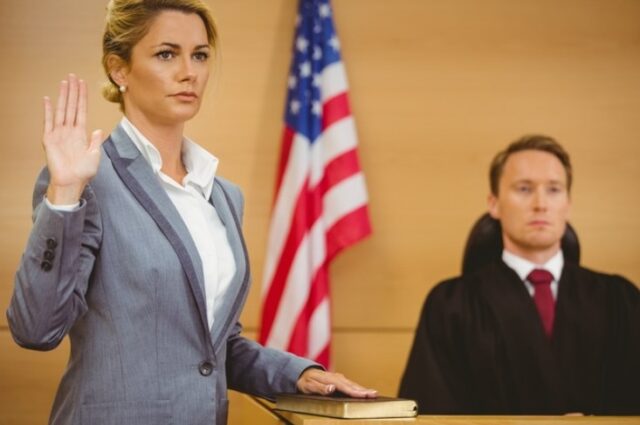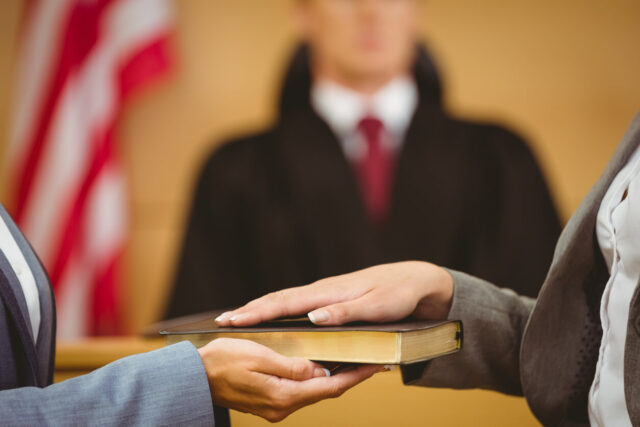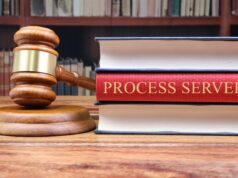
Personal injury cases are complex legal battles that hinge on the establishment and proof of negligence or misconduct. They demand extensive evidence, an understanding of laws and regulations, and the utilization of witness testimonies.
Witnesses play an integral role in providing information about the circumstances surrounding the incident, which can dramatically impact the final verdict.
But what exactly does a witness bring to a personal injury case? What responsibilities do they shoulder, and how can their testimonies be effectively employed to bolster the argument of the prosecution or the defense?
This article analyzes the role of witnesses in personal injury cases by exploring the importance of their testimonies, the different types of witnesses, namely, eyewitnesses and expert witnesses, and the roles they play in the courtroom.
Importance of Witnesses in Personal Injury Cases

In personal injury cases, witnesses serve as vital conduits of truth, their testimonies functioning as tangible threads that weave the narrative of the incident. They are especially important because they provide firsthand or expert information that can authenticate or dispute the claims of the parties involved.
Witnesses offer details about the accident, such as the sequence of events, the behavior of the involved parties, and the conditions of the environment. Lawyers, such as a Beaumont personal injury attorney, use their testimonies as a key component in presenting their cases.
The Role of Eye Witnesses
Eyewitnesses are individuals who were present at the scene of the incident and observed it unfold firsthand. Their primary function in personal injury cases is to recount events as they happened, providing unbiased and impartial testimonies.
These individuals offer a unique perspective for the to examine and can contribute greatly to the authenticity of the plaintiff’s or defendant’s narrative.
They may recount details like the timing of the incident, the reactions of the involved parties, or even external factors like the weather condition, visibility, or any potential distractions that could have influenced the incident.
The Role of Expert Witnesses

Expert witnesses are professionals with specialized knowledge or skills relevant to the case at hand. These could include medical professionals, accident reconstructionists, engineers, occupational therapists, or any other professionals who can offer in-depth insights based on their area of expertise.
A medical expert, for instance, can testify about the severity of the plaintiff’s injuries, the treatment required, and the potential for future medical complications. This can help quantify the damages in terms of medical costs, lost wages, and even pain and suffering.
An accident reconstruction expert could use physical evidence, mathematical calculations, and scientific principles to recreate the accident scene, providing a clear and detailed explanation of how the incident occurred.
For example, in a complicated car accident case, such an expert could determine factors like the speed of the vehicles, the angle of collision, and whether any of the drivers could have taken evasive action, thereby helping to establish fault.
The input from expert witnesses goes beyond mere testimony – it offers technical clarification and scientific credibility to the evidence presented, significantly impacting the court’s understanding of the case and potentially influencing the verdict.
The Responsibilities of Witnesses
Whether an eyewitness recounts the incident or an expert witness elucidates technical details, they need to prioritize truthfulness, as their testimonies can directly impact the court’s decision.
It’s expected that witnesses will recall events to the best of their abilities, refraining from exaggerations, fabrications, or withholding of information. Witnesses are also bound by legal obligations, often formalized through subpoenas, which compel their presence in court or at a deposition.
They’re required to comply with court procedures, treat the process with respect, and answer questions from both sides—the plaintiff and the defense. Failure to abide by these obligations could result in legal repercussions.
Ultimately, the role of a witness goes beyond mere observation; it demands integrity, accuracy, and respect for the judicial process.
How Witnesses Impact the Outcome of a Case

By providing a firsthand account or expert insights, witnesses can substantiate or refute the claims of the parties involved, thereby assisting in the determination of fault and damages. It’s not uncommon for a case to pivot on the testimonies of credible witnesses, as they can create a vivid picture of the incident for the judge or jury, helping them better understand the circumstances.
The weight given to a witness statement is dependent on various factors, including the witness’s credibility, the consistency of their testimony, and its correlation with other pieces of evidence. For instance, a consistent and detailed eyewitness account that aligns with physical evidence can have a profound impact on determining liability.
The role of witnesses in personal injury cases is to offer firsthand observations or expert opinions that illuminate the circumstances surrounding the incident. Whether through the detailed account of an eyewitness or the specialized insight of an expert witness, their testimonies can significantly influence the outcome of the case, highlighting the veracity of claims and assisting in the determination of damages.
Understanding the importance, responsibilities, and effective utilization of witnesses not only strengthens the legal proceedings, but also reaffirms the pursuit of truth, fairness, and justice.







